Moodle is a Course Management System (CMS), also known as a Learning Management System (LMS) or a Virtual Learning Environment (VLE). It is a Free web application that educators can use to create effective online learning sites, it is also an OpenSource Virtual Learning Environment successfully used by over 42,000,000 people in 212 countries.
To work, it needs to be installed on a web server somewhere, either on one of your own computers or one at a web hosting company.
What is Moodle?
The focus of the Moodle project is always on giving educators the best tools to manage and promote learning, but there are many ways to use Moodle:
- Moodle has features that allow it to scale to very large deployments and hundreds of thousands of students, yet it can also be used for a primary school or an education hobbyist.
- Many institutions use it as their platform to conduct fully online courses, while some use it simply to augment face-to-face courses (known as blended learning).
- Many of our users love to use the activity modules (such as forums, databases and wikis) to build richly collaborative communities of learning around their subject matter (in the social constructionist tradition), while others prefer to use Moodle as a way to deliver content to students (such as standard SCORM packages) and assess learning using assignments or quizzes.
Features
Moodle has several features considered typical of an e-learning platform, plus some original innovations (like its filtering system). Moodle is very similar to a learning management system. Moodle can be used in many types of environments such as in education, training and development, and business settings.
Some typical features of Moodle are
- Assignment submission
- Discussion forum
- Files download
- Grading
- Moodle instant messages
- Online calendar
- Online news and announcement (College and course level)
- Online quiz
- Wiki
Developers can extend Moodle’s modular construction by creating plugins for specific new functionality. Moodle’s infrastructure supports many types of plug-ins:
- activities (including word and math games)
- resource types
- question types (multiple choice, true and false, fill in the blank, etc)
- data field types (for the database activity)
- graphical themes
- authentication methods (can require username and password accessibility)
- enrollment methods
- content filters
Many freely-available third-party Moodle plugins make use of this infrastructure.
Moodle users can use PHP to author and contribute new modules. Moodle’s development has been assisted by the work of open source programmers. This has contributed towards its rapid development and rapid bug fixes.
You can find many resources within the Moodle Community, many tutorials and help speaking over 70 languages in 196 countries.
If you are looking for a lighter version of Moodle you can find it at poodle which is a portable version of Moodle. Poodle runs Moodle courses without an Internet connection, mounts Moodle on portable drives (e.g. USB sticks, memory cards, HDD’s, etc), leaves no electronic fingerprint and works with a collection of included and optional portable applications.
[box type=”info”]
Find Moodle at the following Social Networks
Facebook: http://www.facebook.com/moodle.lms
Twitter: http://twitter.com/#!/moodle
[/box]

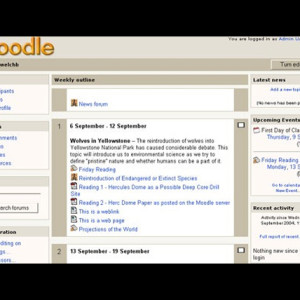
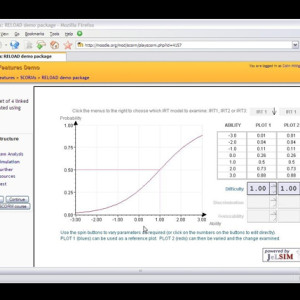
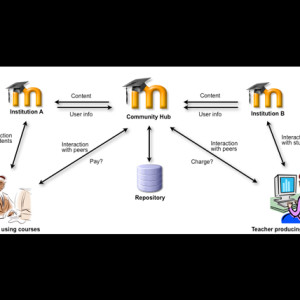
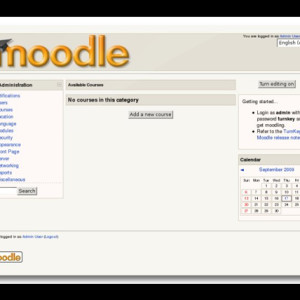
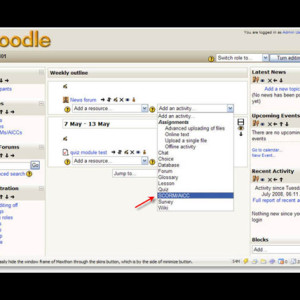
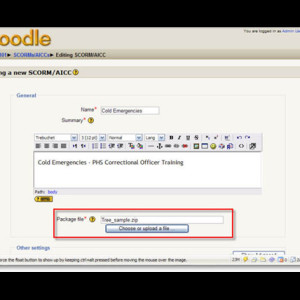


Chamilo, another alternative to Blackboard.
Moodle as an academic learning platform be it at school or university level is feature rich and I would thoroughly recommend this. The ability to customise the look and feel to the n-th degree is amazing with moodle and we do this all the time instead of using standard themes or plain vanilla stamp making learning engaging and fun for students and easily better than any commercial VLE that are out there.
The Moodle system has tools that permit you to subscribe to obtain info about your examine, like RSS feeds for forum discussions and blog posts, calendar feeds that could be added to MS Outlook, email notifications about marked assignments or forum discussions.